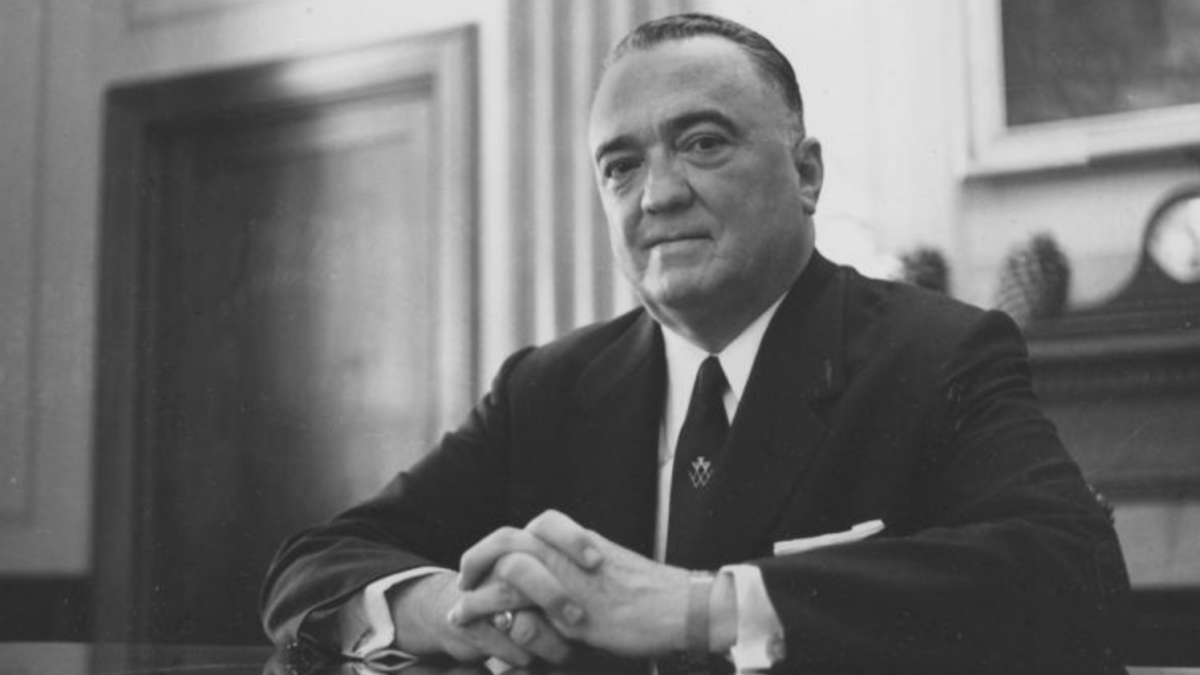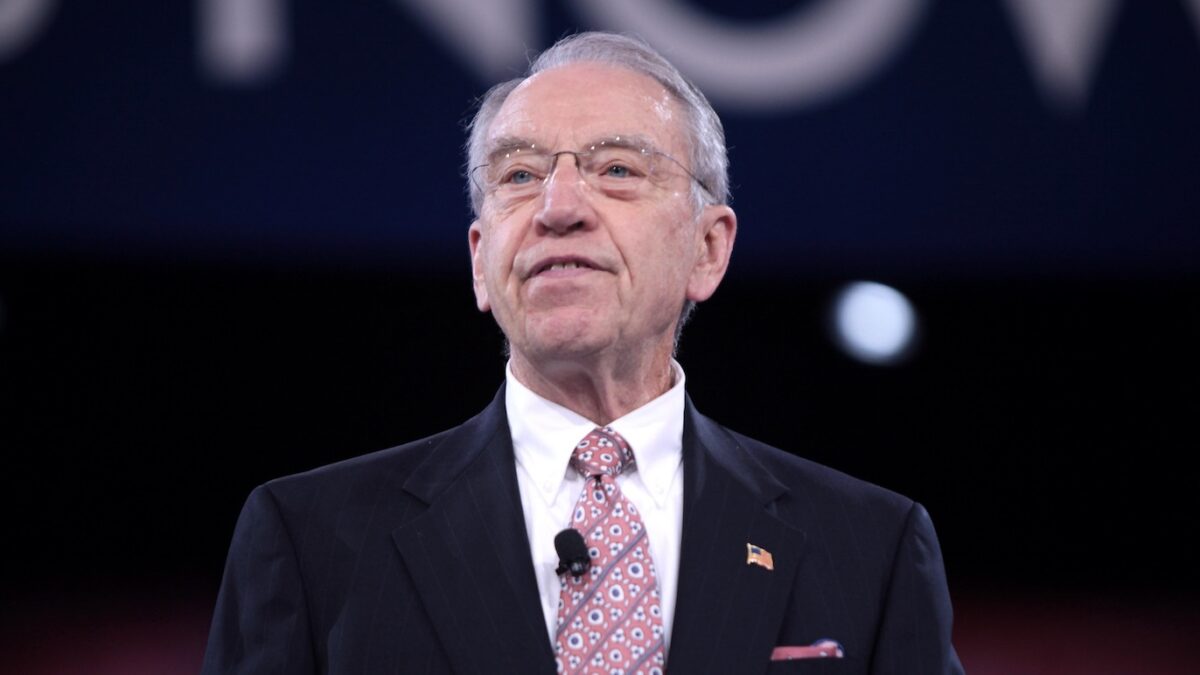Last week, the Justice Department finally charged three men with murdering infamous Boston crime boss Whitey Bulger in 2018. He was in federal custody at the time of his death. The circumstances, including the delay in charging anyone for the crime, raise a host of questions. The FBI’s long, sordid history with Bulger and his family’s lawsuit against the government for its failure to protect him have also raised suspicions about the government’s official story.
But, that’s nothing new when it comes to Bulger and the FBI. It’s a well-documented stain on the FBI’s history that its Boston office used and protected murderers like Bulger as informants for decades, tolerating and turning a blind eye to their crimes.
Following the unprecedented FBI raid of President Trump’s Mar-a-Lago home, Vice President Harris said she had “full confidence that the Department of Justice will do what the facts and the law requires.”
Why? Nearly half the country is much more skeptical, and with good reason.
Obviously, the FBI’s recent history of mishandling controversial investigations into Hillary Clinton and Donald Trump has undermined public trust and polarized views of the Bureau along political lines. And despite the inadequate protections for FBI whistleblowers, several are now risking their careers to report systemic political bias to Congress.
But problems at the Bureau extend far beyond entanglements in partisan disputes. The FBI’s failures in the case of USA Gymnastics physician and convicted child molester Lawrence Nassar rightly led to outrage across the political spectrum.
Unfortunately, these are just the latest in a long line of serious problems — from falsely targeting an innocent man in the 2001 Anthrax attacks (putting taxpayers on the hook for a $5.9 million settlement) to the FBI crime lab scandal of the 1990s to the corrupt Boston office relationship with Bulger to the dark days of J. Edgar Hoover.
Hoover directed the FBI and its predecessor agency from 1924 until his death in 1972. His personality and leadership style are imprinted on the organization’s DNA in countless ways. Its traditions, practices, and culture are still influenced by his legacy.
Hoover was a master bureaucratic infighter who relentlessly amassed power and ruthlessly abused it for nearly fifty years. He is the reason there is a 10-year term limit on FBI directors today. Presidents feared him. He kept secret blackmail files, lied to Congress, illegally surveilled his enemies, and leaked phony stories to the press to manipulate public opinion. But, don’t take my word for it. Instead, take the time to read Betty Medsger’s fascinating book, “The Burglary: The Discovery of J. Edgar Hoover’s Secret FBI.” It meticulously details the history of FBI abuses and how a group of activists broke into an FBI office and stole the documents to expose those abuses.
In 2022, it is astonishing that the name of the FBI headquarters building still honors the man whose COINTELPRO operation illegally spied on Martin Luther King, Jr. and tried to intimidate him into committing suicide.
This history is not offered as an indictment of the FBI as a whole. Most FBI employees today are dedicated, patriotic, hardworking public servants. We should honor and respect their service. But doing so does not mean we should ignore the organization’s fundamental flaws throughout its history and today.
Asking tough questions is meant to help improve the FBI. It needs to purge its culture of Hoover’s influence by learning to welcome independent scrutiny. Oversight can be an opportunity to earn back the public trust that has eroded since Hoover’s abuses were exposed and all the missteps that followed.
Empower Oversight, the whistleblower and government oversight organization I founded last year, recently received a tip that while Whitey Bulger was one of the FBI’s Ten Most Wanted fugitives, the Bureau ignored a lead based on physical evidence reported by a local homicide detective. The detective worked in the area where Bulger was hiding and was later arrested, but for some reason, the FBI never followed up on the lead.
Just before the press reported Bulger’s killers had been charged, Empower Oversight filed two Freedom of Information Act (FOIA) requests, one with the FBI and one with the Department of Justice’s Office of Inspector General (DOJ-OIG), seeking records related to the homicide detective’s tip to the FBI. The tip involved a firearm that was allegedly connected to Bulger.
According to Sergeant Gary M. Steiner of the City of Santa Monica Police Department, he witnessed the attempted sale of a firearm with the serial numbers removed and reportedly belonging to a former bodyguard for Bulger. Although Sergeant Steiner took action to document the incident and ensure that local authorities seized the firearm, the FBI seemed uninterested in finding out whether it was used in any crimes or could lead to locating and apprehending Bulger.
That’s just weird. Why wouldn’t the FBI be all over a promising lead like that?
Following Bulger’s arrest years later, the FBI denied to Sergeant Steiner that it had any record of his contacts and again refused to obtain or examine the firearm. In an unsigned letter, the DOJ-OIG refused to open an inquiry into the issues that Sergeant Steiner raised.
Answering tough questions when cases like this that raise public suspicions about the Bureau would be a step toward the type of transparency that begins to re-build public trust. The FBI is an organization desperately in need of fundamental, transformative change if it is to have any hope of managing the current crisis of confidence. Restoring faith in its integrity would require bold action to publicly break with the abuses of its past.
The FBI needs leadership that is strong enough to embrace a radical new era of reform and accountability. Rather than hiding behind the heroism and dedication of rank-and-file FBI agents to dodge tough questions, the FBI needs leadership confident enough to work with independent oversight authorities to expose serious misconduct, correct it, and impose actual consequences on senior officials.
As with all government agencies, the FBI tries to avoid scrutiny and cover up its failures. But its long history of abuse, immense power, and unique ability to resist independent oversight makes its attacks on those who question it even more disturbing. The media and the American public should not be fooled and elected representatives should not be intimidated. They need to hold the FBI accountable and demand transparency.









